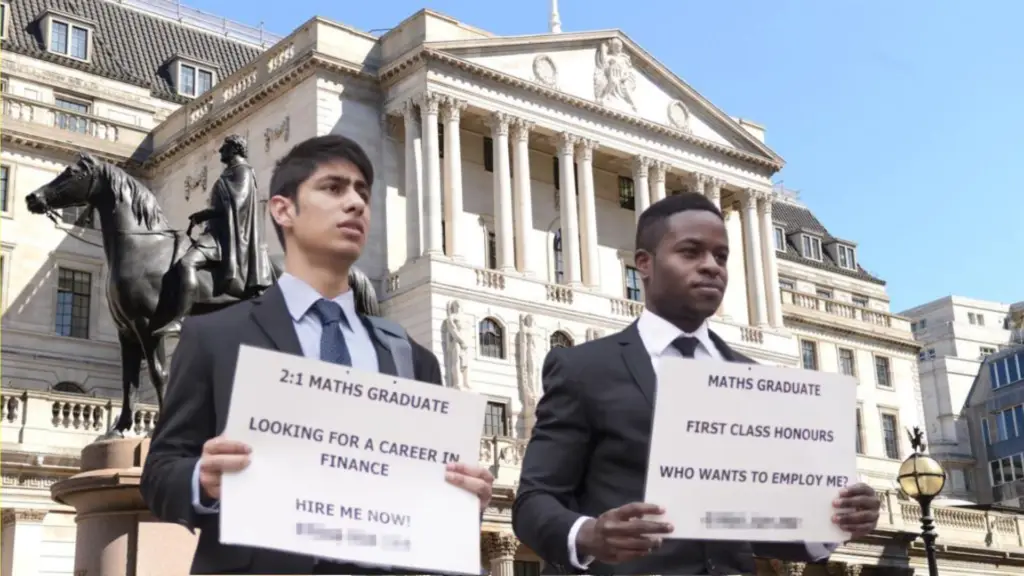In an industry driven by innovation and change, fintech offers some of the most exciting career opportunities for today’s graduates. However, despite the industry’s forward-thinking nature, significant barriers remain for individuals from (diverse and) economically disadvantaged backgrounds. Social class continues to act as one of the most significant barriers to career progression for many in the UK.
According to research, social class remains a significant barrier in the UK financial services sector, even more so than gender or ethnicity. Individuals from lower socio-economic backgrounds face substantial challenges in progressing their careers. For example, those from higher socio-economic backgrounds are more than twice as likely to be found in senior roles compared to their lower socio-economic counterparts. Additionally, 20% of senior financial services professionals attended independent schools, a stark contrast to the 6.4% of the UK population who attended such schools (1).
Furthermore, research by KPMG found that people from lower socio-economic backgrounds took on average 19% longer to progress within their firms compared to those from wealthier backgrounds (2). This disparity demonstrates the extent to which social class impacts career progression in sectors like fintech, reinforcing the need to create more inclusive pathways for individuals from disadvantaged backgrounds.

As someone from New Zealand, where the concept of class is far less prominent—either you have money, or you don’t—I’ve witnessed firsthand how opportunities can be shaped by one’s background.
Growing up as the eldest of five in a mixed-race family, with a Caucasian mother from a privileged background and a Polynesian stepfather from a working-class family, I’ve seen stark contrasts in the experiences that come with differing economic and racial backgrounds. Despite my Maori ancestry, I appear more Caucasian than my siblings and as a result we have had vastly different life experiences, with opportunities either opening or closing based on people’s perceptions of our backgrounds. Although we have all worked hard for the opportunities we’ve been given, my siblings have faced unique challenges—ones that I, with my more Caucasian appearance, was able to avoid. In fact my brother even wrote a song about it called “Colour Blind”.
This unique upbringing has driven my passion to break down barriers within fintech. I believe the industry’s future lies in its ability to reflect the true diversity of the population it serves, and this goes beyond the visible aspects of race and gender. While diversity initiatives for race and gender are essential and more straightforward, class is often overlooked because it is not immediately visible. Social class is not something you can see in a job interview or on a CV, unlike gender or ethnicity, which are often highlighted as part of corporate diversity policies. However, without giving a prominent place to social class in our diversity efforts, we are not addressing the full spectrum of inequality. We see this already in universities, where applications from state school students are given priority over those from private schools—similar initiatives are needed in fintech to level the playing field for those from disadvantaged backgrounds.
Empowering the Next Generation of Fintech Leaders
At our upcoming event, FutureGen 2025, we are committed to bridging this gap by providing recent graduates and young professionals—regardless of their economic background—with the tools, connections, and insights they need to thrive in the fintech industry. The event will feature keynotes, practical workshops, and networking opportunities, all designed to empower the next generation of fintech talent.
We are particularly focused on showcasing to attendees what a day in the life of a fintech professional looks like across various roles, from product management to sales and beyond.
By offering graduates from all backgrounds a chance to hear directly from professionals at different stages of their careers, we aim to inspire them and help them see that their past economic disadvantages do not need to define their future prospects.
The Importance of Representation
The fintech world needs more voices from people who understand financial exclusion firsthand. These perspectives are essential if we want to develop products that are truly inclusive and serve the needs of a broader customer base.
As someone who comes from a background that spans both privilege and disadvantage, I’ve seen the opportunities that open up when people are encouraged to bring their full selves into their work. It’s why I’m committed to ensuring our event is accessible to graduates from all economic backgrounds.
Through partnerships and sponsorships, we’re offering 50 free places to those who might not otherwise be able to afford attendance – irrespective of other factors, such as ethnicity and gender. We are also investigating the potential to stream live and provide access to recorded sessions for those that can’t travel to London.
We believe that providing opportunities for those from less advantaged backgrounds will only enrich the fintech industry and allow it to better serve society as a whole.
A Call to Action
Fintech has the power to change lives, but to do that, we need a workforce that reflects the diversity of society in all its aspects. By focusing on more than just race and gender, and actively working to remove class-based barriers, we can attract a generation of fintech leaders who will make the industry more innovative, inclusive, and impactful.
Together, we can create an industry where all talented individuals, regardless of where they come from, have the opportunity to succeed—and now is the time to act.

FUTUREGEN: A one day event to support grads with opportunities in fintech
DATE / TIME: 8.30AM – 19.30PM, 07 February 2025
ADDRESS: Central London
COST:
- £95 Students / Graduates
- £250 All other attendees
- Apply to attend. Sponsored places available.
References
Bridge Group Report, Shaping our Economy: Socio-economic Diversity in Financial Services, published September 2023.
The report found that individuals from higher socio-economic backgrounds are more than twice as likely to occupy senior roles compared to those from lower socio-economic backgrounds, with 20% of senior professionals having attended independent schools (compared to just 6.4% of the population).
KPMG Social Mobility Report, Mind the Gap, published in 2022.
The report revealed that individuals from lower socio-economic backgrounds take 19% longer to progress to the next grade within firms compared to their wealthier counterparts.

